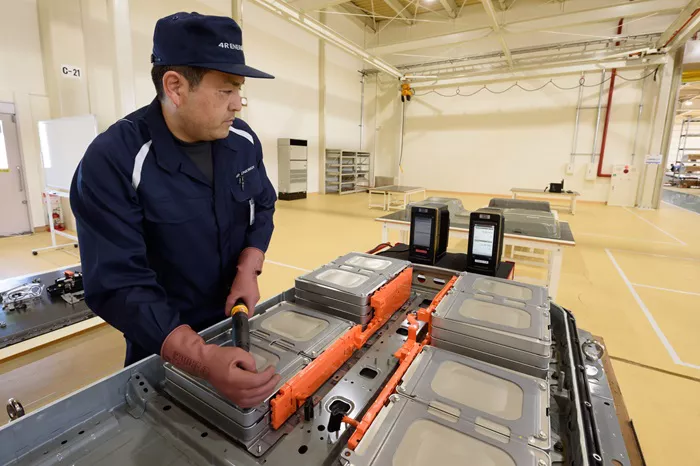Nissan has announced the cancellation of its plans to build a battery plant in Fukuoka Prefecture, a decision driven by the company’s need to prioritize investment efficiency amid its ongoing financial crisis.
Originally, Nissan had planned to invest ¥153 billion ($1 billion) in a lithium iron phosphate (LFP) battery plant in Kitakyushu, aimed at boosting its electric vehicle (EV) offerings. The factory was intended to produce batteries commonly used in EVs, marking a significant step in the company’s strategy to strengthen its position in the rapidly expanding EV market. However, the company has now decided to abandon this plan, citing its need to address more pressing financial concerns.
The company’s financial troubles became glaringly evident in November 2024, when it announced plans to cut 9,000 jobs and reduce production capacity by 20%, following a staggering 94% drop in net sales during the first half of the fiscal year.
A glimmer of hope came when Nissan struck a deal with Honda to combine their operations under a single holding company, effectively offering Nissan a lifeline. However, tensions regarding power dynamics within the partnership led to the deal’s collapse by February 2025.
A key contributor to Nissan’s struggles has been the absence of competitive EVs in its lineup. As the popularity of electric and hybrid vehicles surged, especially in markets like the United States, Nissan’s lack of attractive alternatives significantly contributed to its declining performance in a shifting automotive market.
As Nissan continues to grapple with these challenges, it will need to reassess its strategy and investments to regain its financial footing and compete effectively in the evolving automotive landscape.
Related topics:
- Automotive Fasteners Market Set to Reach US$ 36.85 Billion by 2032
- Hindustan Zinc Pioneers Zinc-Based Battery Tech
- Knox Accelerates EV Charging Rollout to Meet Net Zero Goals

